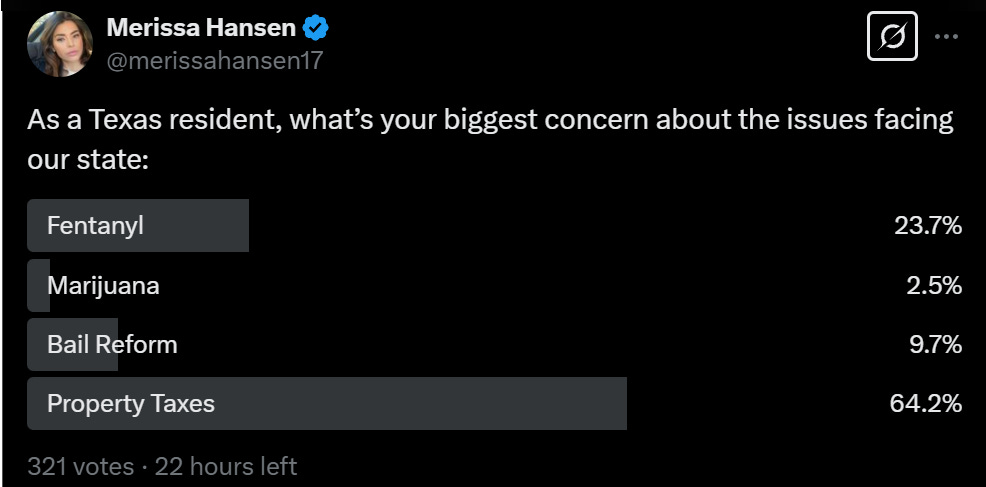SB3 Advances in Move to Ban Sale of all THC Products in Texas
Lieutenant Governor Dan Patrick has been a key figure in pushing for a ban on all forms of consumable tetrahydrocannabinol (THC) in Texas. On December 4, 2024, he announced Senate Bill 3 (SB 3) as a major legislative priority for the 2025 Texas legislative session, which began on January 14, 2025. This bill aims to prohibit the retail sale of all THC products, including hemp-derived cannabinoids like delta-8, delta-9, and THCA, except for non-intoxicating cannabidiol (CBD) and cannabigerol (CBG) under specific conditions. Patrick’s stated goal is to eliminate what he describes as “life-threatening, unregulated forms of THC” that he claims have proliferated since the 2019 legalization of hemp under House Bill 1325, which allowed products with up to 0.3% delta-9 THC.
The Texas Senate passed SB 3 on March 19, 2025, with a vote of 24-7, reflecting bipartisan support. Patrick framed the legislation as a public safety measure, arguing that retailers have exploited the 2019 law to sell high-potency THC products, some allegedly containing “three to four times the THC content found in marijuana from a drug dealer,” and targeting children. The bill does not affect Texas’ Compassionate Use Program (CUP), which allows low-THC prescriptions for medical use, but it would ban all other consumable THC products statewide, including gummies, vapes, beverages, and smokable flower.
Opposition to the ban has been vocal. The Texas hemp industry, represented by groups like the Texas Hemp Federation, argues that it would devastate a multibillion-dollar market, shutter thousands of small businesses (over 8,300 retail locations as of early 2025), and eliminate access to products used for therapeutic purposes by millions of Texans. Critics, including some lawmakers like State Sen. Sarah Eckhardt (D-Austin), contend that the ban is an overreach, suggesting stricter regulations—such as age restrictions, testing requirements, and licensing—could address safety concerns without killing the industry. Economic analyses, like one from the Texas Comptroller, estimate significant revenue losses, projecting a $121 million hit to state sales tax by 2026, alongside millions more lost to local governments.
During a May 2024 Texas Senate State Affairs Committee hearing, Major Mark Melson of the Texas Department of Public Safety’s (DPS) Criminal Investigation Division highlighted enforcement challenges with the current hemp market, which could extend to a THC ban. He noted that distinguishing legal hemp (under 0.3% delta-9 THC) from illegal marijuana or higher-potency THC products is nearly impossible in the field. “There’s a lack of clarity in current law,” Melson testified, pointing out that no roadside tests or drug-sniffing dogs can reliably differentiate between hemp and marijuana based on sight, smell, or immediate analysis. This suggests that a total THC ban, as proposed by SB 3, could exacerbate these issues, potentially overwhelming law enforcement resources without clear, actionable tools to enforce it
This perspective doesn’t equate to opposition to criminalizing THC but indicates a pragmatic worry: a ban might not simplify enforcement as proponents like Lt. Gov. Dan Patrick claim. Instead, it could shift the burden back to an already strained system. For instance, after the 2019 hemp legalization (House Bill 1325), prosecutors dropped many marijuana cases because labs couldn’t distinguish hemp from marijuana without costly, time-intensive testing—equipment many departments still lack. A 2025 THC ban could recreate this chaos, pushing law enforcement to rely on complaint-based enforcement or lab backlogs, as noted by state health officials who currently visit hemp retailers only once every three to five years due to limited staff.
As of March 20, 2025, nearly 40 states have legalized cannabis in some form (medical or recreational), and public support for legalization stands at around 70% according to recent polls.
This shift has influenced law enforcement perspectives. Some agencies and officers now advocate for decriminalization or legalization, citing the inefficiencies and inequities of enforcing cannabis laws. For instance, enforcing marijuana possession laws has been shown to disproportionately target minorities-Black Americans are about four times more likely to be arrested than white Americans despite similar usage rates-leading to criticism that such enforcement undermines public trust and diverts resources from more serious crimes.
Evidence of this evolving stance includes specific examples from the field. In 2020, over 50 current and former law enforcement professionals signed a letter urging Congress to decriminalize marijuana, highlighting the need to redirect resources and address racial disparities in enforcement. More recently, in 2024, two West Coast police organizations publicly supported federal cannabis legalization, marking a notable departure from traditional prohibitionist views among statewide police groups. Qualitative studies, such as those conducted in Washington post-legalization, reveal mixed feelings: while some officers express concerns about increased impaired driving and youth access, others note benefits like reduced caseloads for nonviolent possession offenses and the ability to focus on higher-priority issues.
As of the most recent data available from the Texas Department of State Health Services (DSHS), fentanyl-related poisoning deaths in Texas have been tracked and reported through various sources. According to the Texas fentanyl data dashboard, from August 2023 to July 2024, over 1,900 Texans died due to fentanyl poisoning. This reflects a decrease of nearly 20% (approximately 430 fewer deaths) compared to the previous 12-month period (August 2022 to July 2023), when more than 2,360 deaths were recorded.



